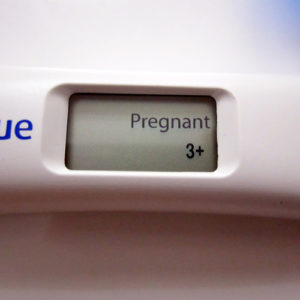Your body usually releases an egg around day 14 of your cycle. Sometimes this happens later, which we call late ovulation. Let’s learn more about why this happens and what it means for you.
What is Late Ovulation?
Late ovulation means your body releases an egg after day 21 of your cycle. This can make it harder to get pregnant. Your body needs special hormones to release an egg. When these hormones are out of balance, ovulation happens late.
Signs of Late Ovulation
Your body gives you signs when you’re ovulating. The most common sign is a change in your cervical mucus. It becomes clear and slippery, like raw egg white. You might also feel:
- Mild cramps
- Bloating
- A heavy feeling in your pelvis
- Tender breasts
What Causes Late Ovulation?
Many things can cause late ovulation:
1. Stress
When you’re stressed, your body makes more of a hormone called cortisol. This can stop your body from releasing eggs on time.
2. Medicines
Some medicines can delay ovulation, like:
- Ibuprofen
- Birth control pills
- Some mental health medicines
3. PCOS
PCOS (Polycystic Ovary Syndrome) affects 1 in 10 women. It can cause:
- Late or missing periods
- Extra hair growth
- Spots
- Weight gain
- Trouble getting pregnant
4. Thyroid Problems
Your thyroid is a gland in your neck that makes important hormones. When it’s not working well, it can affect when you release eggs.
5. Breastfeeding
When you’re breastfeeding, your body makes different hormones. These can delay ovulation.
How Does Late Ovulation Affect Getting Pregnant?
Late ovulation can make it harder to get pregnant because:
- You have fewer chances each month to conceive
- The egg might not be as healthy
- It’s harder to know when you’re fertile
How Does it Affect Periods?
Late ovulation can make your periods irregular. Your body needs time to build up the lining of your womb. When you ovulate late, this timing gets mixed up.
Common Questions
When is ovulation considered late?
Most women ovulate around day 14. Ovulation after day 21 is late.
Does late ovulation mean poor egg quality?
Some studies show that eggs released later might not be as strong. But every woman is different.
How can I tell if I ovulate late?
Look for these signs:
- Longer cycles than usual
- Changes in your cervical mucus
- Different ovulation symptoms than normal
Can I still get pregnant with late ovulation?
Yes! But it might take longer. Keep track of your cycle to know your fertile days.
Living Well with Late Ovulation
While late ovulation can feel frustrating, there’s plenty you can do to help your body find its natural rhythm. Think of your body as a finely-tuned instrument that sometimes needs a gentle nudge to play in time.
A balanced lifestyle works wonders! Start your morning with a bowl of wholegrains – they’re packed with B vitamins that help regulate your hormones. Throughout the day, try to squeeze in some movement. You don’t need to run marathons; a brisk walk in the park or a fun dance session in your living room will do the trick.
Sleep matters more than you might think. When you’re tossing and turning at night, your hormones get confused too. Try creating a cozy bedtime routine – perhaps a warm bath with lavender oil, or curling up with your favourite book. Your body will thank you!
What about supplements? While they’re not magic pills, some women find evening primrose oil or vitamin D helpful. Just remember to chat with your doctor before starting any supplements – they’ll know what’s best for your unique situation.
Here’s a fun fact: stress and ovulation play a game of tug-of-war in your body. Next time you’re feeling overwhelmed, try this quick trick: breathe in for four counts, hold for four, then out for four. It’s amazing how something so simple can help your body feel more balanced.
Getting Help
If you think you have late ovulation, talk to your doctor. They can:
- Check your hormone levels
- Look for any health issues
- Give you medicine to help if needed
- Suggest ways to track your cycle
Remember: Every woman’s body is different. What’s normal for you might not be normal for someone else. If you’re worried about late ovulation, your doctor can help you find answers.
Photo by Zoom Baby
Zoom Baby is a leading supplier of Pregnancy Tests and Ovulation Test Kits





